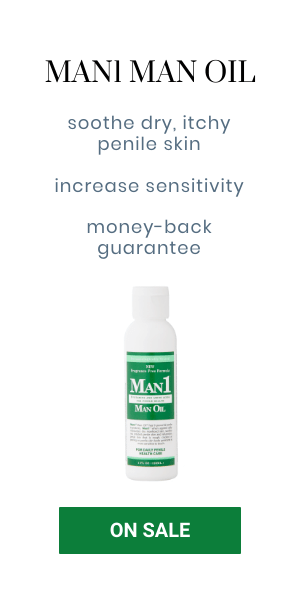The foreskin, or prepuce, is more than just an extra flap of skin. It consists of highly specialized tissue that protects the glans (head) of the penis underneath; it also contains a great deal of sensory tissue that provides pleasurable sensation, and it acts as a natural lubricant for the penile skin. In the past, this skin was often removed from male infants through circumcision – often for religious reasons or tradition, but also because it was believed to be healthier for the child. Now, doctors do not always support the practice as medically necessary, because this tissue has important benefits. However, if it is not cared for properly, certain foreskin problems may have a negative effect on penis health. The most common problems and their treatments are described here.
Phimosis. This condition occurs when the foreskin cannot be pulled back over the head of the penis. Physiological phimosis is normal in young boys; the foreskin cannot be pulled back at birth, and it generally takes several years (or longer) for it to retract completely. However, in older teens and men, pathological phimosis can occur as a result of prior injury to the foreskin, poor hygiene, or infections. Symptoms may include penis pain, difficulty urinating, and swelling. Treating phimosis generally involves keeping the area clean. Men who have frequent problems with phimosis may opt for circumcision.
Paraphimosis. This problem is diagnosed when the retracted foreskin cannot be pulled back over the head of the penis. Unlike phimosis, paraphimosis is considered a medical emergency, because if the trapped skin swells, it can cut off the blood supply to the head of the penis. This can result in gangrene, or tissue death, and in some cases, all or part of the penis may require amputation if this occurs. Paraphimosis can be caused by injuries to the foreskin – including aggressive masturbation – or issues such as frequent catheterization or failure to return the foreskin to its normal position after retracting it.
Balanitis. This inflammatory condition is typically the result of poor hygiene; it occurs when the foreskin becomes infected and swollen. Men with balanitis may also develop a smelly discharge. Frequent issues with balanitis can cause scarring of the foreskin tissue and may lead to phimosis. Treating the problem is generally directed at keeping the foreskin and underlying tissue clean; in some cases, topical cortisone creams may be recommended.
Fungal infections. The area under the foreskin is warm, dark, and moist, which provides the ideal environment for fungal spores such as Candida yeast. While circumcised men may also develop fungal infections, they tend to be more common in intact men. Fungal infections can cause swelling, discharge, itching, and a cracked, dry appearance; they can be treated successfully using over-the-counter antifungal creams.
Foul odors. Even men who practice good hygiene can have ongoing problems with unpleasant penile odor. This is often caused by bacteria under the foreskin, especially in men who do not remove the smegma – the whitish, cheesy substance that builds up underneath. Carefully removing the smegma and keeping the area clean may help to reduce the odor.
Caring for the uncircumcised penis
With the right approach to care, men can avoid most of the problems discussed here. First, it is important to wash the penis every day, at least once per day; and it should always be cleansed after sex, exercise, and other activities that cause sweating. Men should use warm, not hot, water for the purpose, along with a mild, non-soap cleanser. The foreskin should be pulled back gently, and any smegma should be carefully wiped away, followed by a thorough rinse to remove any traces of soap.
After washing, the foreskin should be left retracted until the area underneath is dry; this will help to prevent unpleasant odors and reduce the risk of fungal infections. However, once it is dry, it is important to replace the foreskin – leaving it retracted could lead to paraphimosis.
Moisturizing is also key; the prepuce can have a tendency to become dry and cracked, which increases the likelihood of developing problems. Hydrating agents like vitamin E, and plant-based emollients such as Shea butter, are a good choice for this purpose. Using a penis health crème (health professionals recommend Man1 Man Oil) containing these ingredients can provide vital moisture, as well as nourishing and protecting the delicate penile skin.
